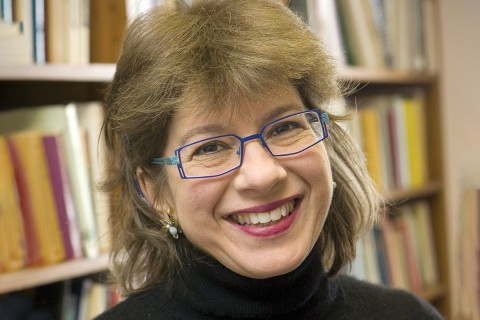Judaism scholar Susannah Heschel on her father’s legacy
“How does a political gesture become a moment of prayer?”

Susannah Heschel chairs the Jewish Studies Program at Dartmouth College. She has long been active in interfaith conversations and has focused her research on Jewish-Christian debates in 19th- and 20th-century Germany. Her books include Abraham Geiger and the Jewish Jesus, The Aryan Jesus, and a book in German on the history of Jewish scholarship on Islam. She is the daughter of Abraham Joshua Heschel and has edited several collections of his writings. She wrote the foreword to Thunder in the Soul, a new collection published by Plough.
With Martin Doblmeier’s new documentary film about Abraham Joshua Heschel, called Spiritual Audacity, and Plough’s new collection of his writings, Thunder in the Soul, some Christians will be encountering your father’s work and thought for the first time. Tell us about him. What was most important to him?
When my father came back from marching in Selma, he said, “I felt my legs were praying. I felt something holy in the march, and it reminded me of walking with Hasidic rebbes in Europe.” He was drawing from classical Hasidic teachings to say that every action of our lives can be transformed into prayer. My father writes, in God in Search of Man, that the mitzvot are prayers in the form of a deed. So the question is, How do you take something quotidian and transform it into a holy moment? That’s the question that Jewish texts ask over and over again.





